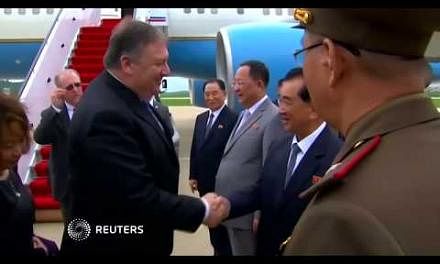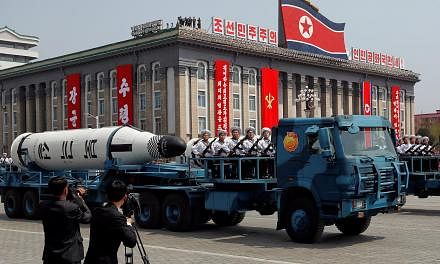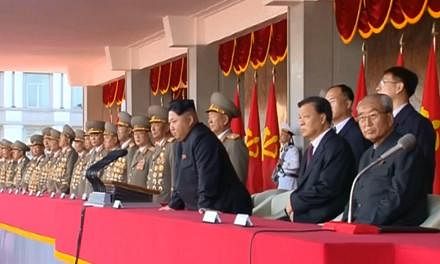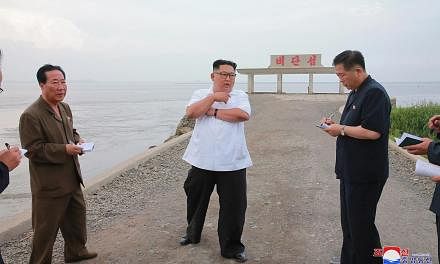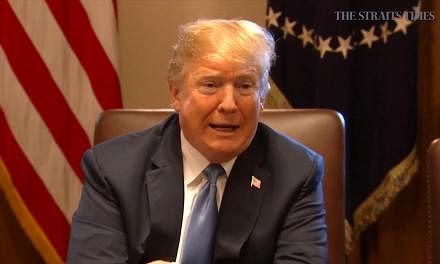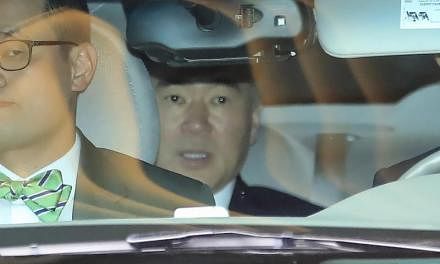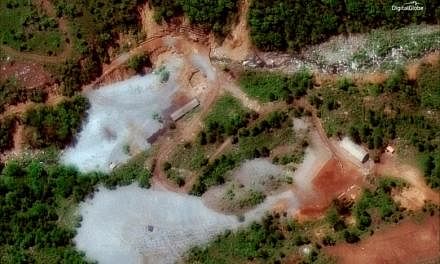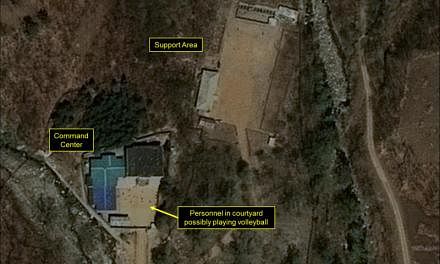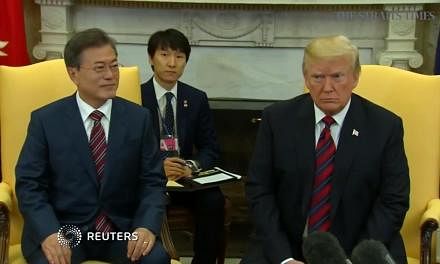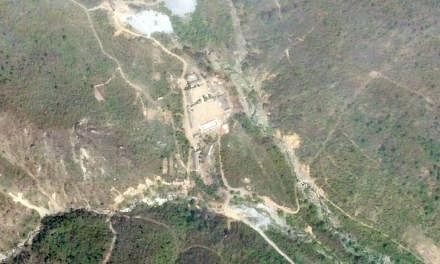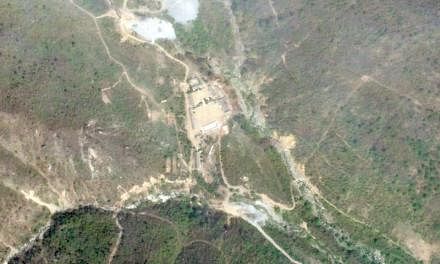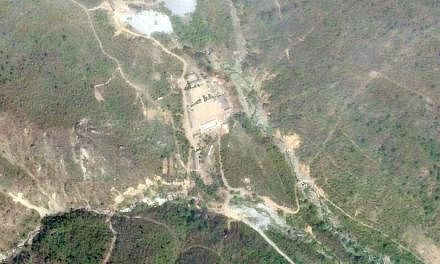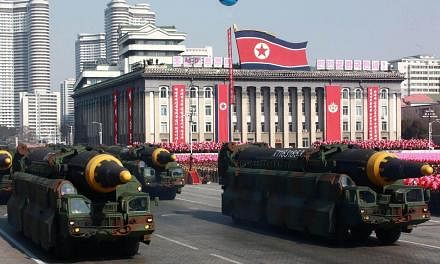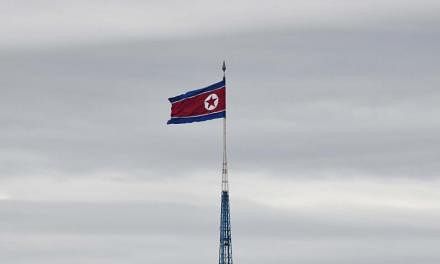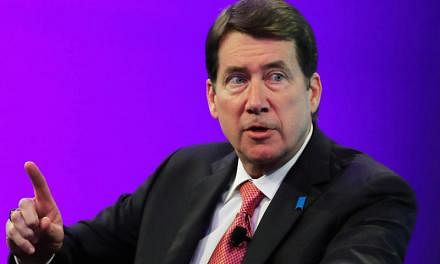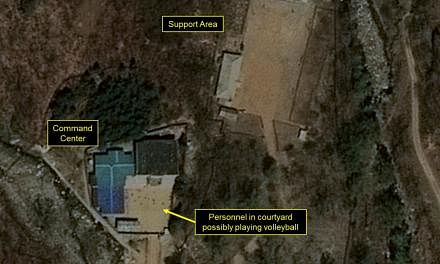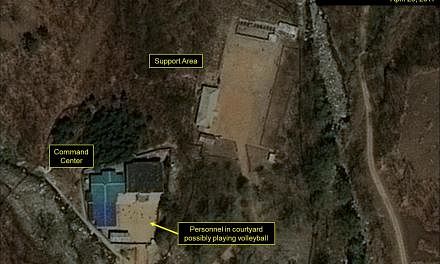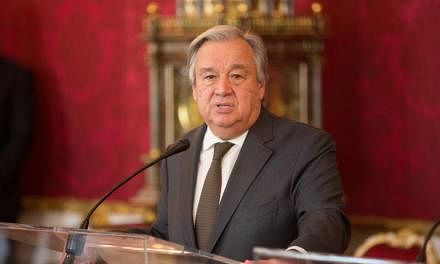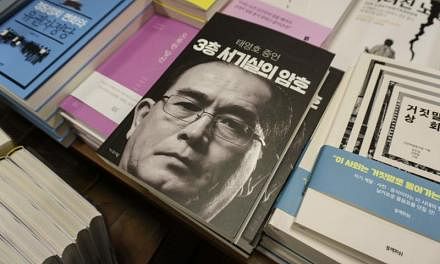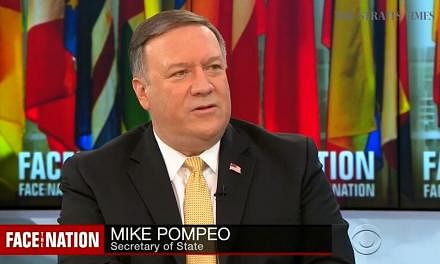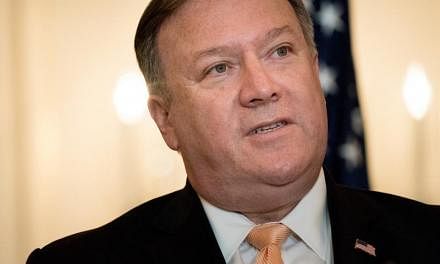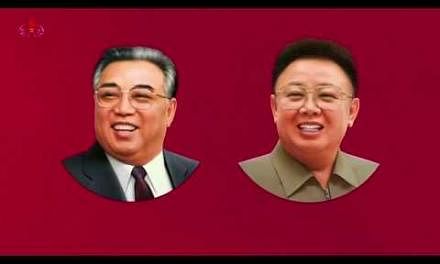SEOUL (AFP, REUTERS) - Kim Jong Un has vowed to make North Korea the "world's strongest nuclear power," state media reported on Wednesday (Dec 13) , as the reclusive nation shows little sign of reining in a weapons programme fuelling global alarm.
The North has rattled the international community with a flurry of missile launches and its largest ever nuclear test in recent months in its bid to develop a warhead capable of striking the United States.
Kim told workers behind the recent test of a new missile Pyongyang said was capable of that feat, that his country "will victoriously advance and leap as the strongest nuclear power and military power in the world," in a ceremony on Tuesday (Dec 12), according to state news agency KCNA.
Kim also personally awarded medals to "those in the field of defence science who most faithfully and perfectly carried out the Party's plan for building strategic nuclear force, successfully test-fired ICBM Hwasong-15 and thus demonstrated the dignity and might of our powerful state all over the world once again," KCNA said without naming the recipients.
They were given several medals, including the Order of Kim Il Sung and Order of Kim Jong Il, the highest orders of the DPRK, an acronym for North Korea's official name, the Democratic People's Republic of Korea.
In addition to the medals, KCNA said the scientists and officials were given watches engraved with the names of Kim Il Sung and Kim Jong Il, the North Korean leader's grandfather and father.
"He solemnly declared that the development of new strategic weapon systems including A-bomb, H-bomb and ICBM Hwasong-15 with indigenous efforts and technology and the realisation of the great cause of completing the state nuclear force serve as a great historic victory of our Party and people of the country," North Korea's state media added citing Kim.
Kim's comments come as global powers scramble for a response to the crisis, with the US backing stringent economic and diplomatic sanctions on Kim's regime to halt its nuclear drive.
In what is seen as a possible softening of US stance, Secretary of State Rex Tillerson said on Tuesday (Dec 12) the US is ready to begin talks on North Korea's nuclear disarmament without prior conditions.
"We're ready to have the first meeting without preconditions," Tillerson told a meeting on the crisis at the Atlantic Council policy forum in Washington.
"Let's just meet and let's talk about the weather if you want and talk about whether it's going to be a square table or a round table if that's what you're excited about.
But Tillerson also insisted Pyongyang must show it is ready to consider surrendering its bombs.
Since it fired its first intercontinental ballistic missile (ICBM) - the Hwasong-14 missile - on July 4, the US' Independence Day, the North has continued to test ever more powerful ballistic missiles and boasts it can now deliver a "super-large heavy warhead" anywhere on the US mainland with the Nov 29 launch of the Hwasong-15 ICBM.
Fears of a catastrophic conflict with the nuclear-armed regime have spiked as the leaders have taunted each other, with the US President pejoratively dubbing his rival "Little Rocket Man".
Many analysts suggest that the rocket is capable of reaching the US mainland but voice scepticism that Pyongyang has mastered the advanced technology needed to allow the rocket to survive re-entry to the Earth's atmosphere.
Last month's launch was the first test of any kind since Sept 15, and quashed hopes that the North may have held back in order to open the door to a negotiated solution to the nuclear standoff.
A senior UN official returning from Pyongyang said on Tuesday that North Korean officials had told him it was important to prevent war but offered no concrete proposal for talks.
"They agreed that it was important to prevent war," Jeffrey Feltman, the UN's political affairs chief, told reporters after briefing the Security Council on his trip.
Feltman met North Korea's Foreign Minister Ri Yong Ho and Vice Foreign Minister Pak Myong Kuk during his visit to Pyongyang over the weekend - the first by a high-ranking UN official since 2011.
No followup meeting was agreed during the talks, but Feltman said he told the North Koreans that his visit should be seen as "only the beginning" of a new exchange.
"They listened seriously to our arguments," said Feltman, though acknowledging that "they did not offer any type of commitment to us at that point."
"I think they have to reflect on what we said with their own leadership," he added.
The UN under secretary-general for political affairs said he urged Pyongyang to "signal that it was prepared to consider engagement" with world powers and that the United Nations could help.
"Time will tell what was the impact of our discussions, but I think we've left the door ajar," he said. "I fervently hope that the door to a negotiated solution will now be opened wide."
A career diplomat who has served in the US State Department, notably on Middle East issues, Feltman said his mission to Pyongyang was "certainly the most important" that he had ever undertaken.
The UN Security Council has imposed three rounds of sanctions over the past year against North Korea over its increasingly powerful missile and nuclear tests.

